Natural Born Sportsperson Mysterious Authority
What Is a Natural Born Sportsperson and What Does It Mean?
In the world of athletics, the term “natural born sportsperson” often surfaces in conversations about exceptional talent and innate ability. But what exactly does it mean to be a natural-born sportsperson, and what implications does it have for athletes, coaches, and sports enthusiasts?
Defining a Natural Born Sportsperson
A natural born sportsperson is someone who appears to possess an inherent ability to excel in sports, often displaying exceptional physical and mental traits that give them an edge over others. These individuals seem to have a natural affinity for athletic pursuits, showing remarkable skill and aptitude with minimal formal training.
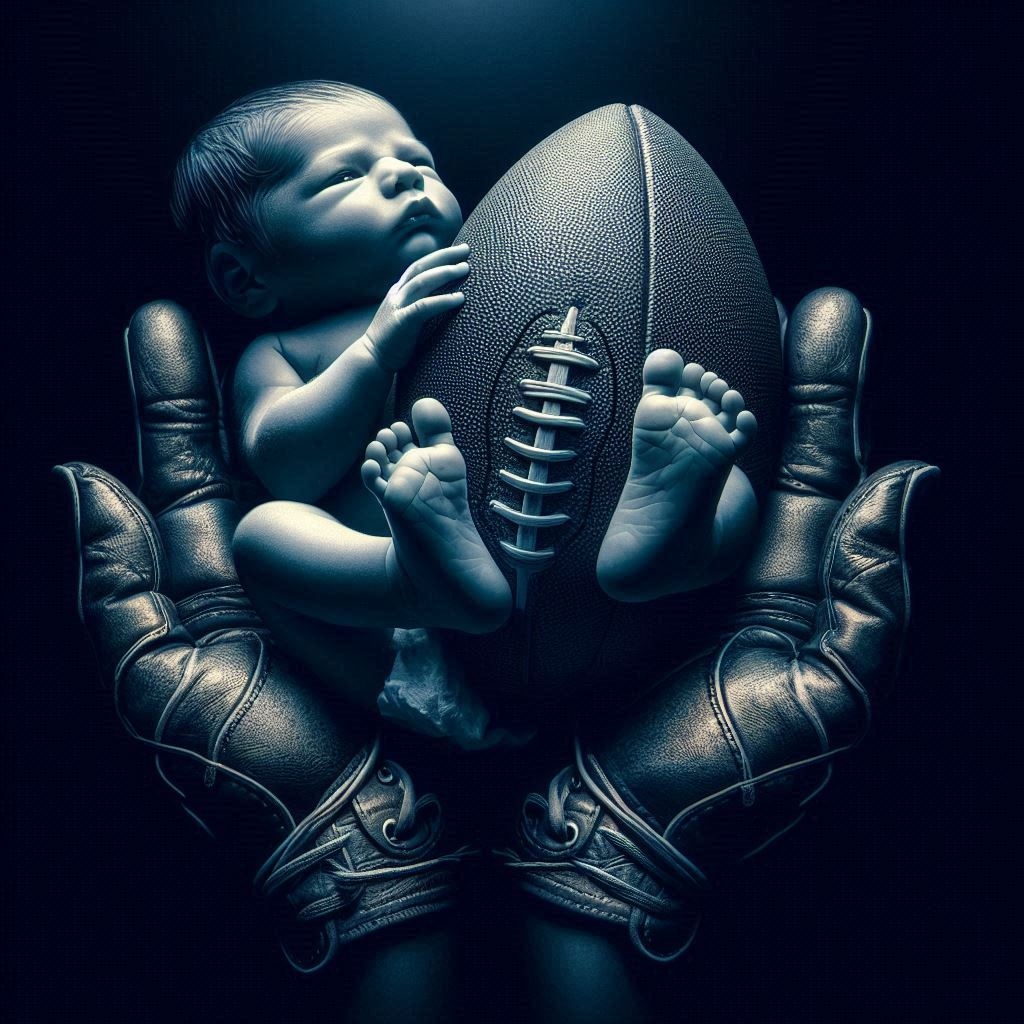
Key Characteristics of a Natural Born Sportsperson
Physical Attributes
Natural born sportspeople often have physical traits that are advantageous for their chosen sport.
Height and Build
Certain sports, like basketball or volleyball, favor taller athletes, while others, like gymnastics, may favor those with a more compact build.
Muscle Composition
A higher percentage of fast-twitch muscle fibers can provide advantages in sports requiring explosive power and speed, such as sprinting or weightlifting.
Coordination and Balance
Exceptional hand-eye coordination and balance are critical in sports like tennis, golf, and martial arts.
Mental Attributes
Beyond physical prowess, natural born sportspeople often exhibit mental characteristics that contribute to their success.
Competitive Drive
A strong desire to win and push beyond limits is a common trait.
Focus and Concentration
The ability to maintain focus under pressure and make quick, strategic decisions is crucial in competitive sports.
Resilience
The mental toughness to bounce back from setbacks and maintain motivation despite challenges.
Early Development
Many natural born sportspeople show an early interest and proficiency in sports, often excelling in physical activities from a young age. Their early development is marked by a rapid acquisition of skills and a passion for competition.
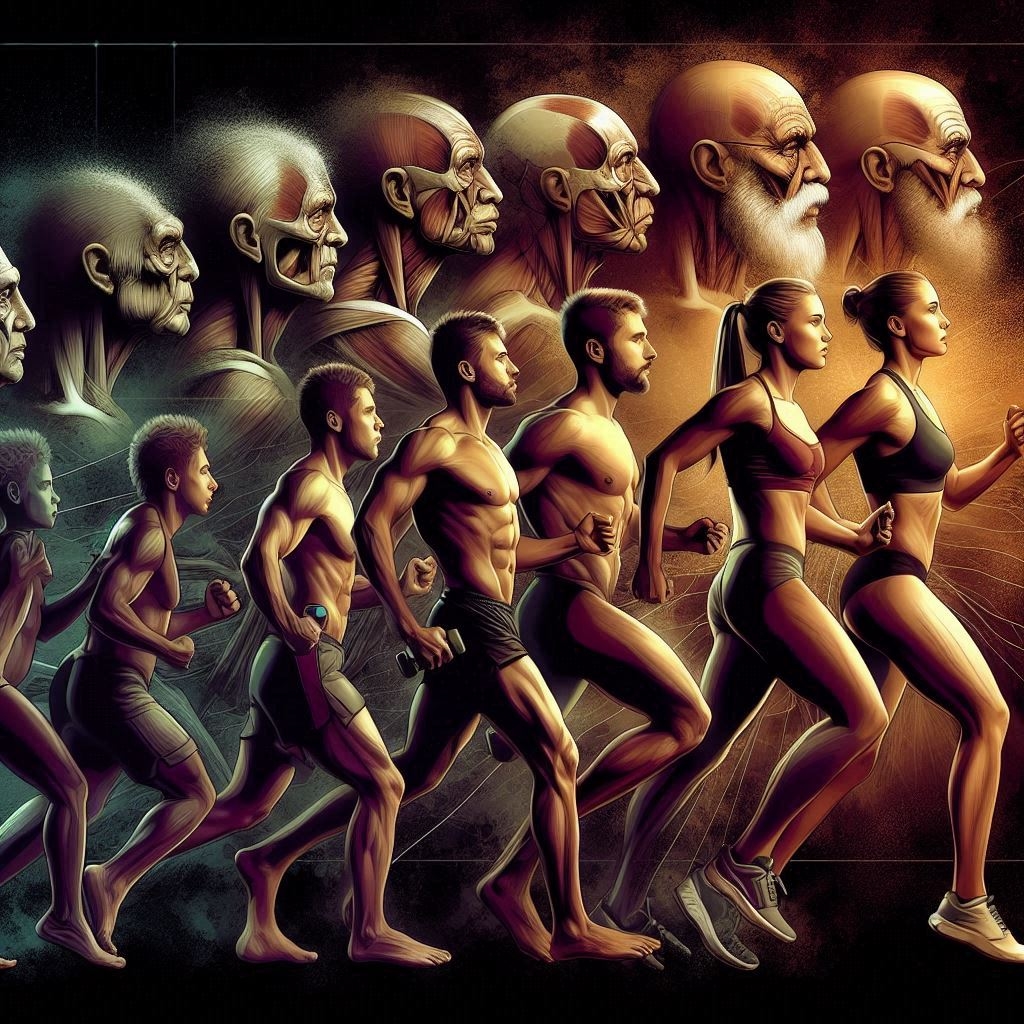
Nature vs. Nurture
The Debate
The concept of a natural born sportsperson often brings up the age-old debate of nature versus nurture. Are these individuals born with their talents, or are their abilities the result of rigorous training and environmental influences?
Nature
Proponents of the nature argument believe that genetic factors play a significant role in athletic success. Genetic predispositions, such as body type, muscle composition, and aerobic capacity, can give certain individuals an inherent advantage in sports.
Nurture
On the other hand, advocates of the nurture perspective argue that environmental factors, including access to training, lifestyle, quality coaching, and supportive communities, are crucial in developing athletic talent. They believe that while natural ability is important, hard work and dedication are equally critical for success.

The Interplay
Most experts agree that both nature and nurture contribute to the making of a natural born sportsperson. Genetic predispositions provide the raw potential, while training, practice, and support systems help realize and refine this potential.
Is This Actually a Real Idea?
The notion of a natural born sportsperson is compelling, but is it a valid concept? The answer lies in both scientific evidence and real-world observations.
Scientific Evidence
Research in genetics and sports science supports the idea that certain individuals possess genetic traits that give them a natural advantage in sports. For example, variations in the ACTN3 gene are associated with differences in muscle performance, and some individuals may have a genetic predisposition for endurance or strength.
Real-World Observations
Anecdotal evidence from the sports world also supports the concept. Many elite athletes, such as Michael Phelps in swimming or Usain Bolt in sprinting, have physical and mental attributes that seem almost tailor-made for their respective sports. These examples suggest that natural talent, combined with dedicated training, leads to exceptional performance.
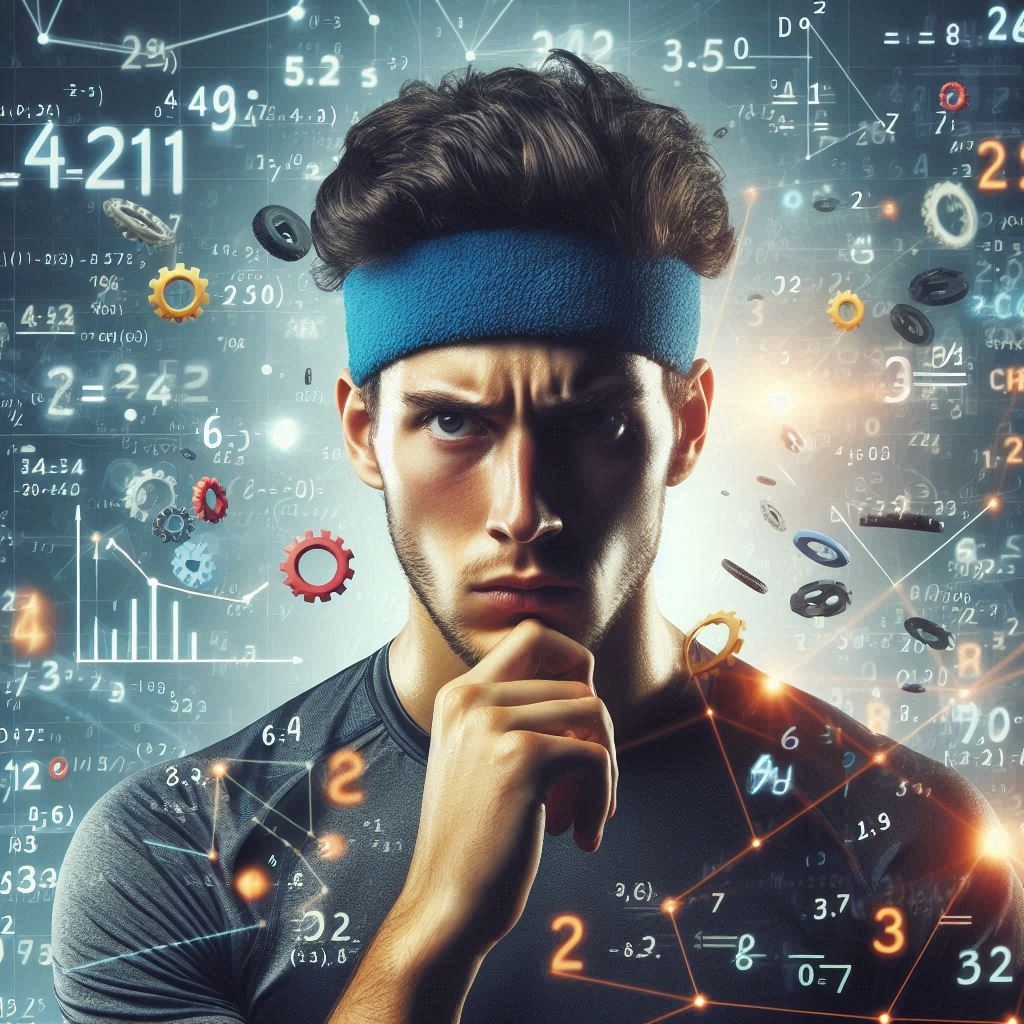
Cultural and Historical Context
Throughout history, certain cultures have produced a disproportionate number of elite athletes in specific sports. For instance, East African countries like Kenya and Ethiopia are renowned for producing world-class long-distance runners, which may be attributed to both genetic factors and cultural practices.
While the idea of a natural born sportsperson is supported by evidence, it is essential to recognize that this natural talent must be nurtured through training, practice, and support to reach its full potential.
Can Natural Talent Be Lost or Regained?
An intriguing question is whether natural athletic talent can be lost if not nurtured, and whether it can be regained later in life.
Loss of Talent
It is possible for natural talent to diminish if not actively developed. Skills, endurance, and muscle strength can decline over time without regular practice and conditioning. Additionally, mental attributes like focus and resilience can also weaken without consistent reinforcement.
Regaining Talent
The good news is that many aspects of natural talent can be regained with dedicated effort. Muscle memory, for example, allows individuals to relearn skills more quickly than those who are starting from scratch. With proper training and a supportive environment, athletes can often regain their former proficiency. You may not get back to pro level.
Adaptation and Change
It is also important to note that as individuals age, their physical and mental capabilities may change. While certain attributes may decline, others can improve. For example, an athlete might lose some physical speed but gain in strategic thinking and experience.
Long-Term Potential
Ultimately, the potential for regaining and maintaining natural talent depends on the individual’s commitment to training, the quality of their support system, and their ability to adapt to new circumstances.
Implications for Training and Development
Understanding the traits of natural born sportspeople can inform training and development strategies for athletes.

Talent Identification
Early identification of potential athletic talent allows for targeted training and development programs. Coaches and scouts often look for physical and mental attributes that indicate a natural affinity for sports.
Tailored Training
Customized training programs that consider an athlete’s unique strengths and weaknesses can optimize their development. For natural born sportspeople, this may mean focusing on honing specific skills and techniques that align with their innate abilities.
Holistic Development
Addressing both physical and mental aspects of training ensures well-rounded development. Mental resilience, strategic thinking, and emotional regulation are as important as physical conditioning.
Support Systems
Building a strong support system, including coaches, mentors, and supportive peers, is vital for nurturing athletic talent. Encouragement, constructive feedback, and a positive training environment can significantly impact an athlete’s growth.
The Evolutionary Perspective
From an evolutionary standpoint, the development of human traits can be seen as a response to environmental pressures. Early humans adapted to their surroundings in ways that ensured survival, such as developing tools for hunting or creating social structures for mutual support. Over time, these adaptations became ingrained in our genetic makeup, leading to the intrinsic traits we observe today.
For example, the capacity for language and communication is believed to have evolved as a means of coordinating group activities and transmitting knowledge. This intrinsic trait has been shaped by the environment, as different cultures developed unique languages and modes of communication suited to their specific needs.
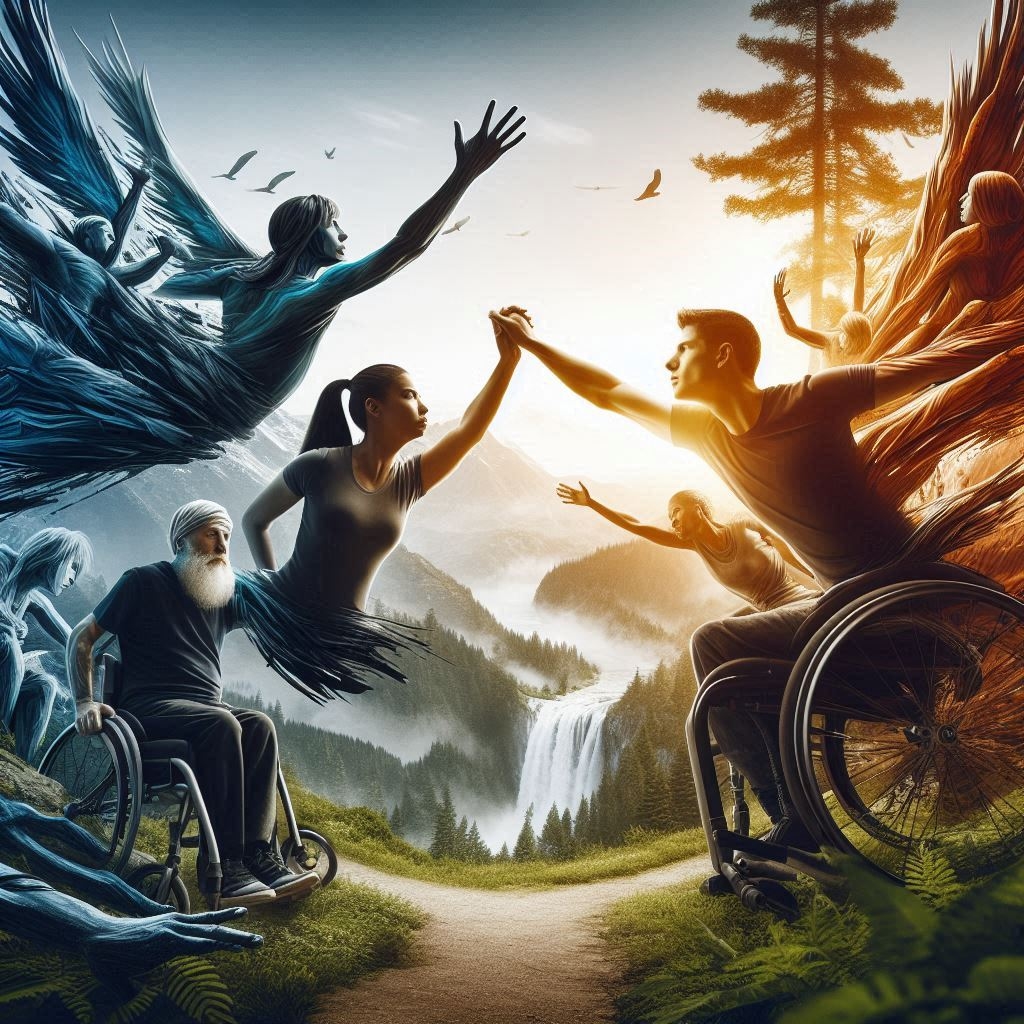
The Psychological Perspective
Psychologically, the interplay between nature and nurture is evident in the development of personality and behavior. While certain traits may be genetically predisposed, the environment plays a crucial role in shaping how these traits manifest. Positive reinforcement, social modeling, and cultural expectations all contribute to the development of individual personalities.
Studies in behavioral genetics suggest that while genetic factors account for a significant portion of personality variance, environmental influences such as parenting styles, peer relationships, and life experiences are equally important. This highlights the complex and intertwined nature of our development as humans.
The Social Perspective
From a social perspective, the environment provides the framework for human interaction and societal development. Social norms, laws, and institutions are created in response to environmental conditions and human needs. These structures, in turn, shape individual behaviors and collective identities.
For instance, the development of democratic institutions in certain societies can be seen as a response to the desire for equitable distribution of power and resources. The environment, in this case, includes historical events, cultural values, and economic conditions that collectively influence social structures.
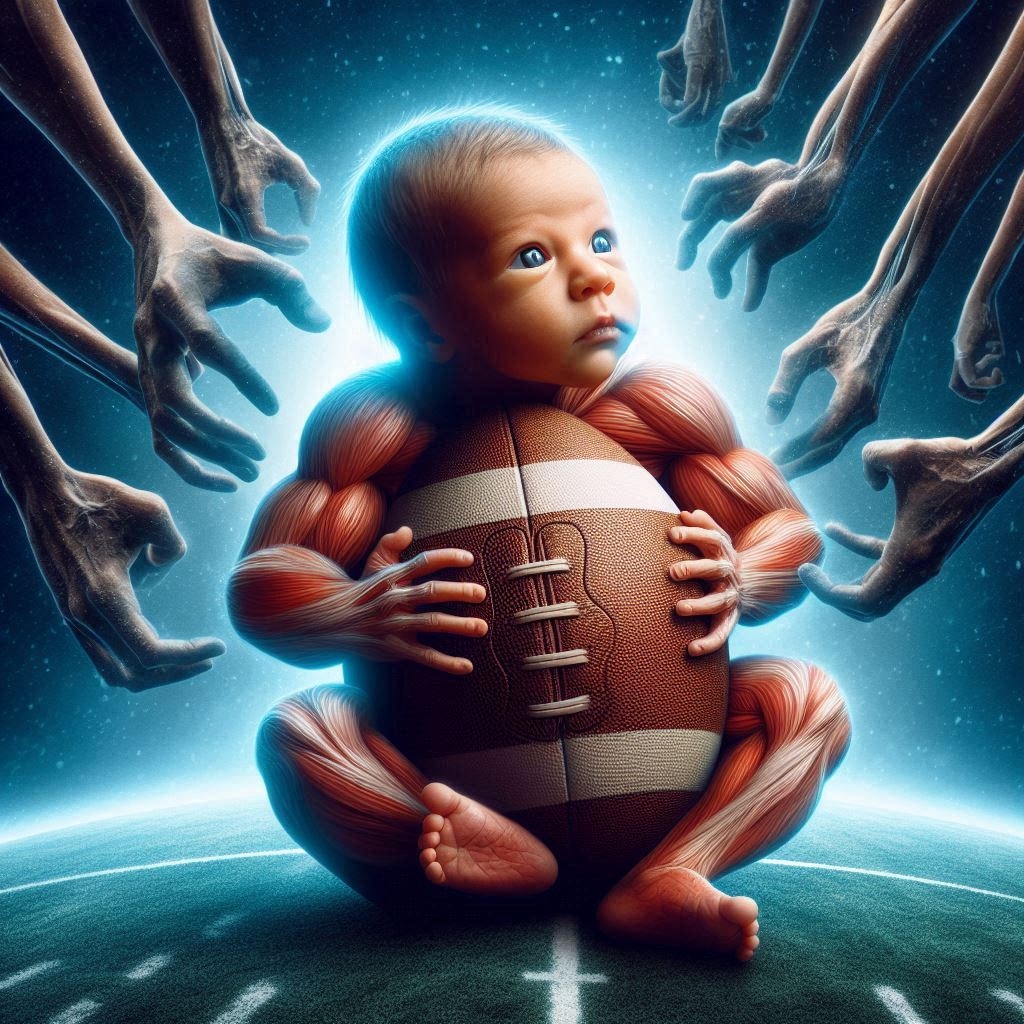
The Role of Genetics in Athletic Success
Genetic factors undoubtedly play a critical role in determining physical capabilities and potential for success in sports. Certain genetic markers are associated with increased muscle strength, endurance, and agility. For example, the ACTN3 gene, often referred to as the “sprint gene,” is linked to fast-twitch muscle fibers that are advantageous in sprinting and power-based activities.
However, possessing these genetic traits alone does not guarantee success. The expression of these genes can be influenced by environmental factors such as diet, training, and overall lifestyle. This interplay between genetics and environment highlights the complexity of developing athletic talent.
The Impact of Early Specialization
Early specialization in a particular sport can have significant implications for an athlete’s development. Focusing on one sport from a young age allows athletes to develop sport-specific skills and gain a competitive edge. However, this approach also has potential drawbacks, including an increased risk of overuse injuries and burnout.
Research suggests that a more diversified approach to early sports participation can be beneficial. Engaging in multiple sports during childhood can enhance overall athletic development, reduce the risk of injury, and foster a lifelong love of physical activity. This well-rounded foundation can later be channeled into specialized training as the athlete matures.

The Importance of Mental Training
While physical training is essential, mental preparation is equally important for achieving success in sports. Techniques such as visualization, goal-setting, and mindfulness can enhance an athlete’s performance by improving focus, reducing anxiety, and fostering a positive mindset.
Mental resilience, the ability to bounce back from setbacks and stay motivated, is crucial for athletes. This resilience can be cultivated through mental training practices that help athletes cope with pressure, maintain confidence, and stay committed to their goals.
Visualization
Athletes are often trained and teach themselves visualization techniques to mentally rehearse their performance like understanding corners in the F1. By imagining successful outcomes, they can build confidence, reduce pre-competition anxiety, and prepare themselves for various scenarios they might encounter during competition. Visualization helps in creating a mental blueprint of success, which can translate into improved physical performance.
Goal-Setting
Setting goals in sports for sports people and teams provides athletes with direction, spirit and motivation. Goals can be short-term, focusing on immediate improvements, or long-term, targeting career milestones. By breaking down larger objectives into smaller, manageable tasks, athletes can maintain focus and track their progress.
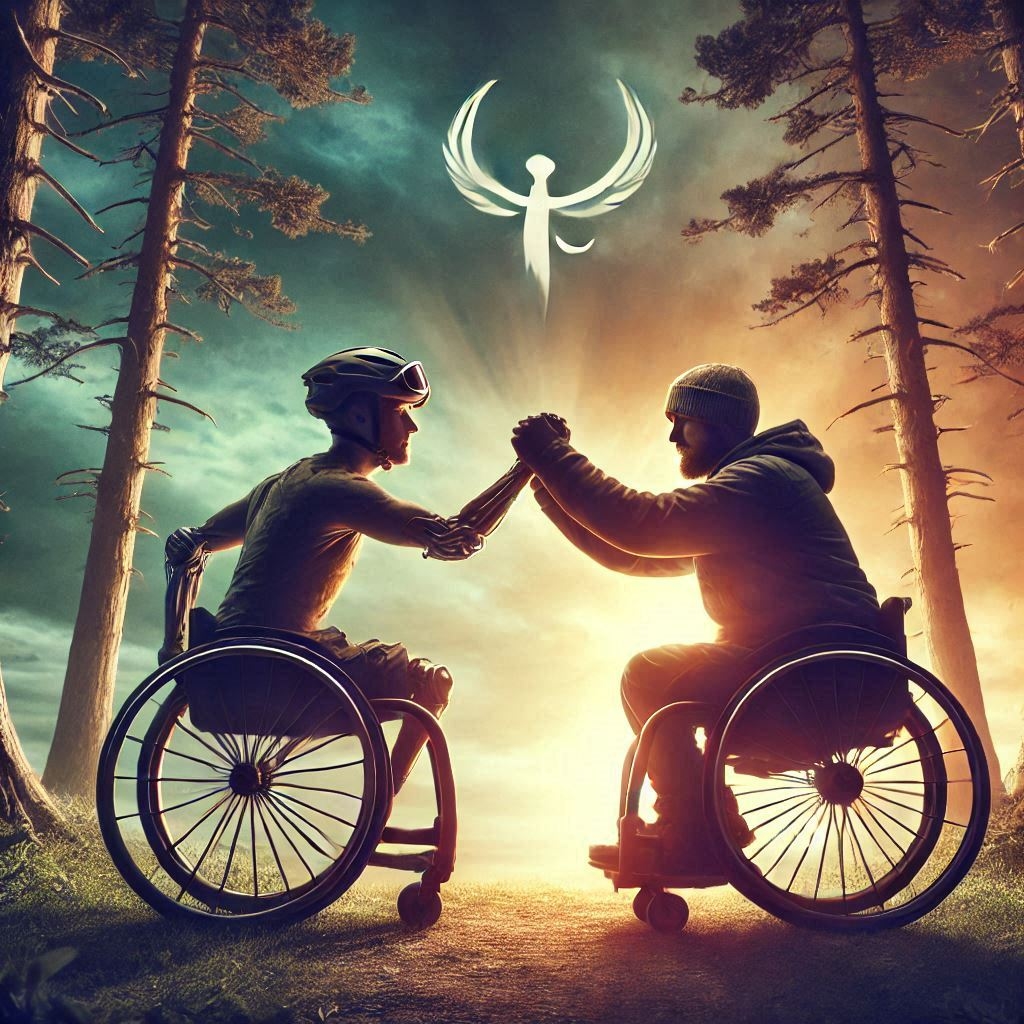
Mindfulness and Relaxation
Mindfulness practices is a real thing. These are trainig mechanisms such as meditation and deep-breathing exercises. These mechanisms overtime help athletes psychologically stay present and manage stress. These techniques improve concentration, enhance emotional regulation, and foster a sense of calm. Relaxation exercises, like progressive muscle relaxation, can also reduce physical tension and promote mental clarity.
Positive Self-Talk
Athletes do sometimes loudly talk to themselves & sometimes softly. This helps in many ways. The way athletes talk to themselves can pick up the spirit of the game they are playing and change performance. Positive self-talk involves replacing negative thoughts with encouraging and affirming statements. This practice boosts self-confidence, reduces anxiety, and fosters a resilient mindset. Athletes who engage in positive self-talk are better equipped to handle challenges and maintain a positive outlook.
Mental Toughness
Developing mental toughness involves building the mental strength to persevere through difficult situations. This trait is characterized by determination, focus, and the ability to stay composed under pressure. Mental toughness training often includes stress inoculation exercises, which expose athletes to pressure situations in a controlled environment, helping them develop coping strategies.
Performance Routines
Establishing pre-performance routines can help athletes enter a state of optimal focus and readiness. These routines, which may include specific warm-up exercises, breathing techniques, or mental cues, create a sense of familiarity and control. Consistent routines can enhance concentration, reduce anxiety, and ensure that athletes are mentally prepared for competition.

Mental Health Support
Ensuring that athletes have access to mental health support is crucial for their overall well-being and performance. Sports psychologists, counselors, and support groups can provide valuable resources for managing stress, addressing mental health concerns, and maintaining a healthy balance between sport and life.
Conclusion
Embracing the Full Spectrum of Talent
The concept of a natural born sportsperson is a multifaceted idea that incorporates both genetic predispositions and environmental influences. While some individuals may have innate physical and mental traits that give them a head start in sports, the realization of their full potential requires dedicated training, mental resilience, and a supportive environment.
The interplay between nature and nurture highlights the complexity of athletic talent, emphasizing that both inherent abilities and learned skills are crucial for success. Recognizing and nurturing this blend of traits can help athletes, coaches, and sports enthusiasts appreciate the diverse factors that contribute to excellence in sports.
Understanding that natural talent can be both developed and, to some extent, regained after periods of inactivity underscores the importance of consistent effort and a positive support system. Ultimately, celebrating the rich tapestry of human athletic potential enriches our appreciation for the hard work and dedication behind every accomplished sportsperson.
Join the Discussion
Do you believe that natural born sportspeople truly exist, or do you think success in sports is more about hard work and training? Have you seen examples of natural talent being regained after a hiatus? Who do you this is a natural born sportsperson?






We treasure your thoughtful engagement here. Thank you for being such a supportive reader!
An immense thank-you for your time and engagement. We truly appreciate having you here!